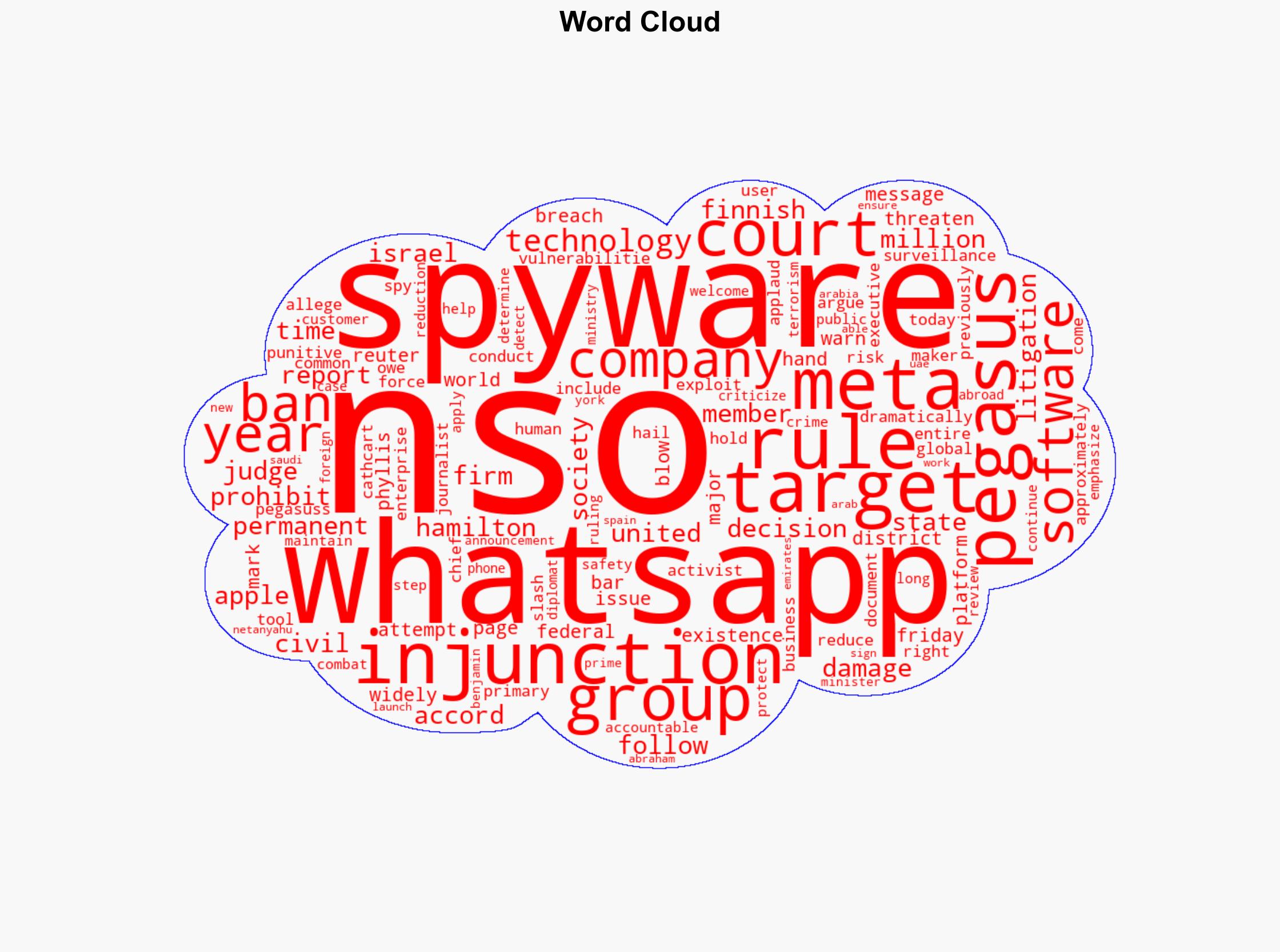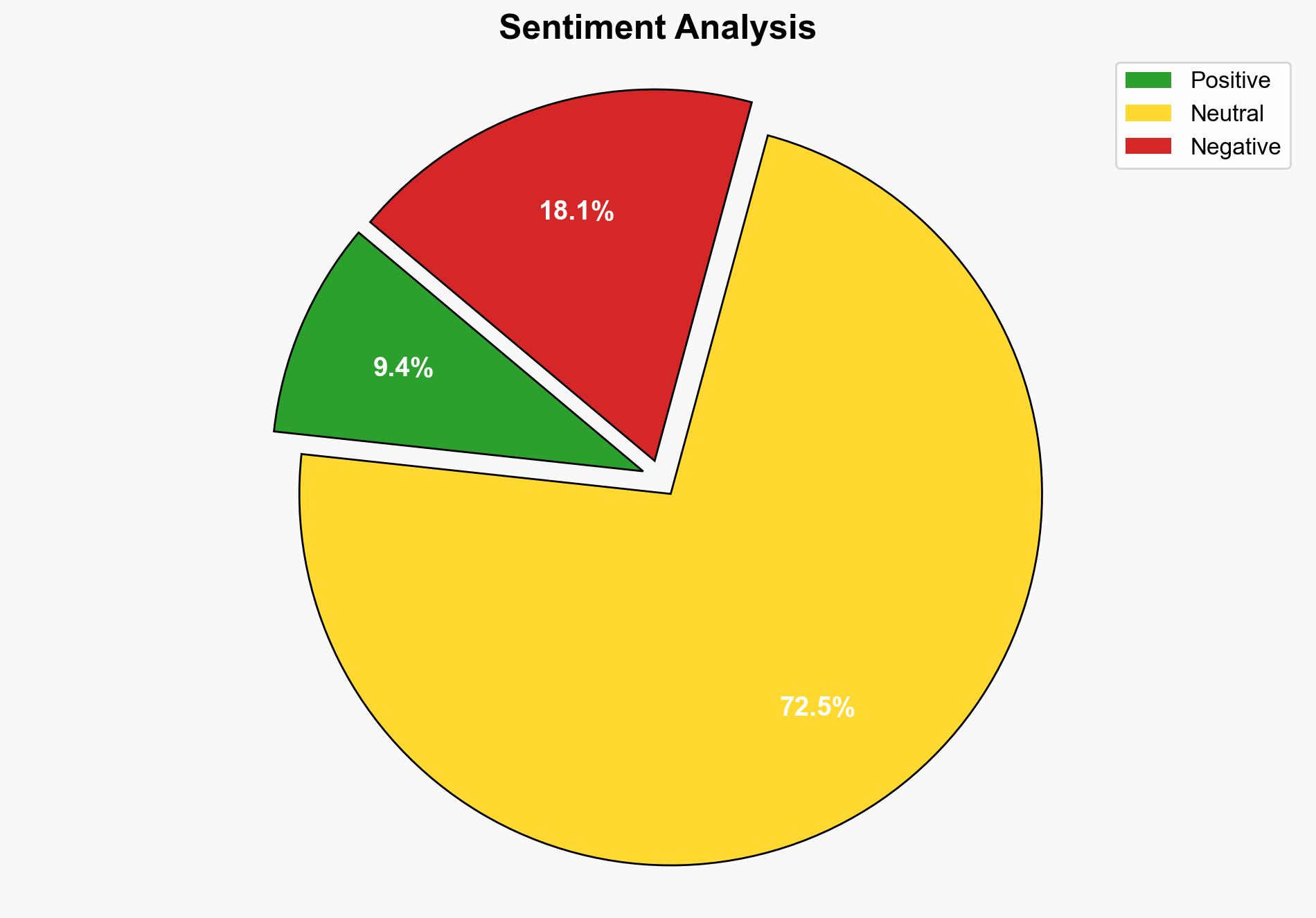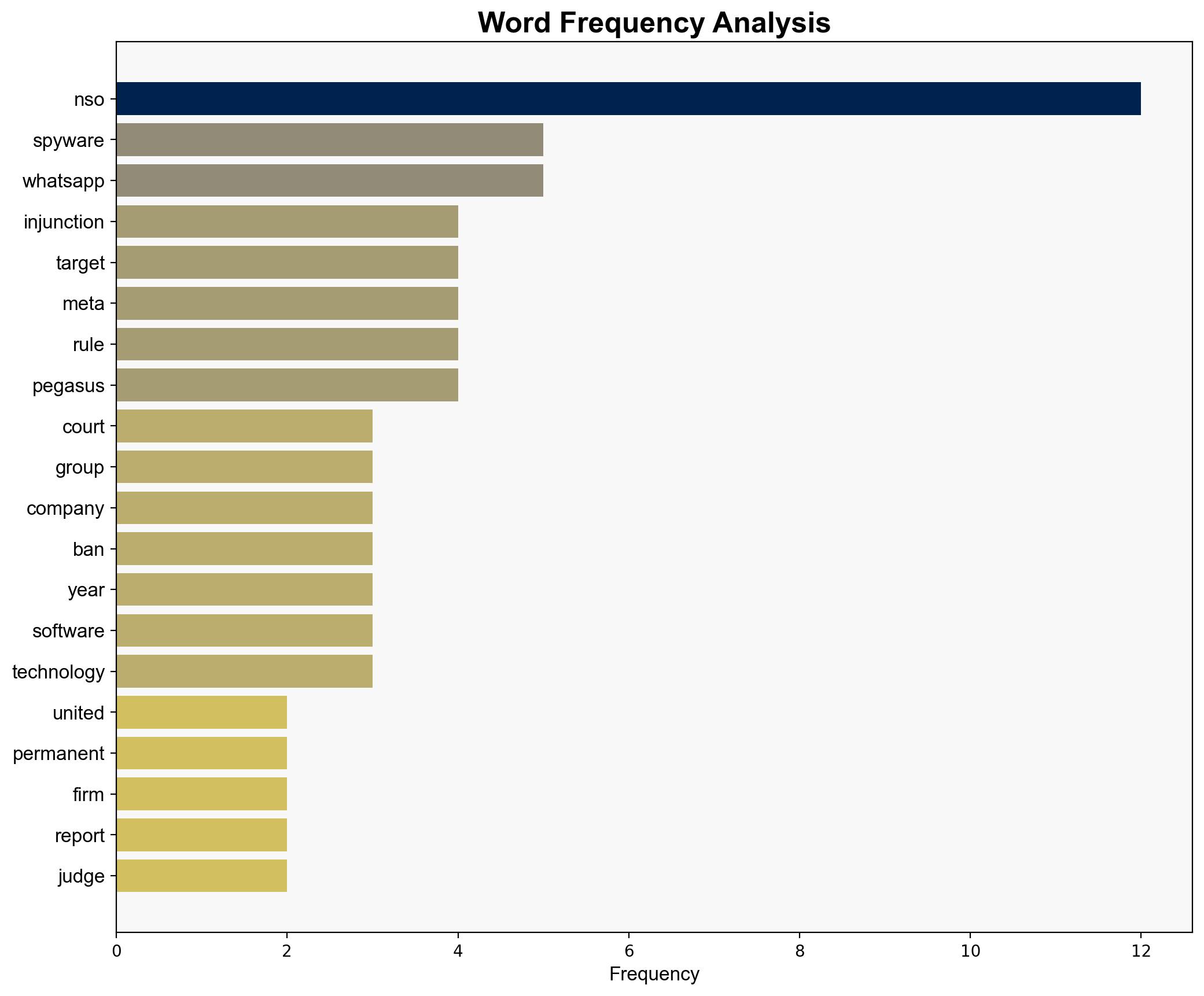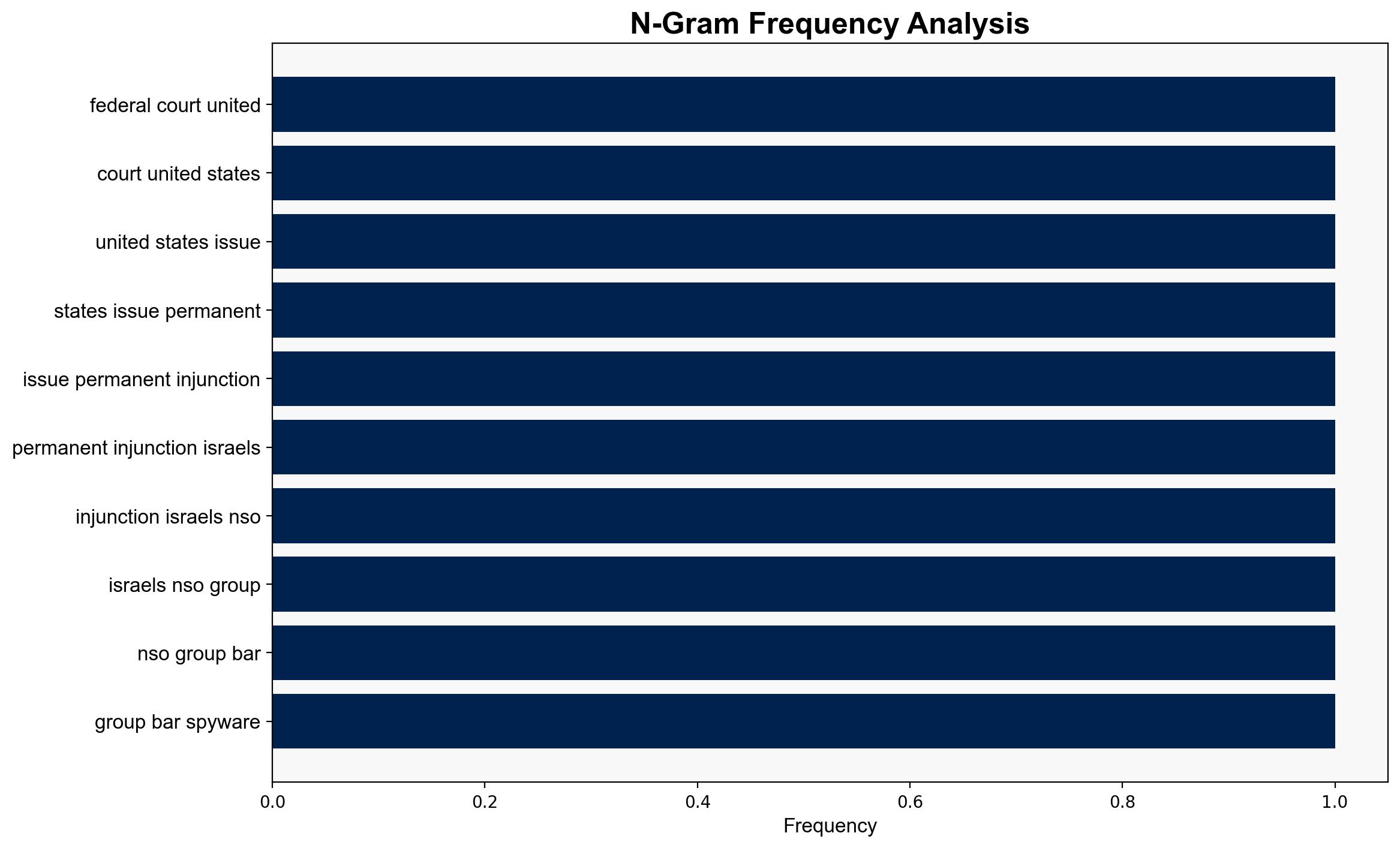US court bans Israeli NSO Group from targeting WhatsApp – Israelnationalnews.com
Published on: 2025-10-19
Intelligence Report: US court bans Israeli NSO Group from targeting WhatsApp – Israelnationalnews.com
1. BLUF (Bottom Line Up Front)
The US court’s decision to ban the NSO Group from targeting WhatsApp represents a significant legal and operational setback for the company. The ruling may have broader implications for international cybersecurity norms and the use of surveillance technology. The most supported hypothesis suggests that the ruling will lead to increased scrutiny and regulation of similar technologies globally. Confidence Level: Moderate. Recommended action includes monitoring global regulatory responses and preparing for potential shifts in cybersecurity policies.
2. Competing Hypotheses
Hypothesis 1: The court ruling will significantly hinder NSO Group’s operations and lead to increased global regulation of surveillance technologies. This hypothesis is supported by the court’s permanent injunction and the reduction in damages, which may encourage other jurisdictions to adopt similar stances.
Hypothesis 2: The ruling will have limited impact on NSO Group’s operations, as the company will adapt by focusing on markets outside the US and leveraging its technology for government-sanctioned purposes. This hypothesis considers NSO’s emphasis on combating crime and terrorism and the potential for continued demand from non-US entities.
Using ACH 2.0, Hypothesis 1 is better supported due to the legal precedent set and the potential ripple effect on international regulatory frameworks.
3. Key Assumptions and Red Flags
Assumptions include the belief that other countries will follow the US lead in regulating surveillance technologies. A red flag is the lack of detailed information on NSO’s customer base and potential shifts in their business strategy. Blind spots may include underestimating NSO’s adaptability and the resilience of its technology in non-US markets.
4. Implications and Strategic Risks
The ruling may lead to increased global scrutiny of surveillance technologies, potentially affecting international relations and cybersecurity policies. Economic risks include potential losses for NSO and similar firms. Cyber risks involve the possibility of increased clandestine surveillance activities. Geopolitically, countries may reassess their alliances and technology partnerships.
5. Recommendations and Outlook
- Monitor international regulatory developments and prepare for potential shifts in cybersecurity policies.
- Engage with global partners to establish clear norms and guidelines for the use of surveillance technologies.
- Scenario Projections:
- Best Case: Global consensus on surveillance technology regulation enhances cybersecurity and human rights protections.
- Worst Case: Fragmented regulatory responses lead to increased cyber threats and geopolitical tensions.
- Most Likely: Gradual adoption of stricter regulations with varying degrees of enforcement across regions.
6. Key Individuals and Entities
Phyllis Hamilton, Cathcart, Benjamin Netanyahu
7. Thematic Tags
national security threats, cybersecurity, counter-terrorism, regional focus





